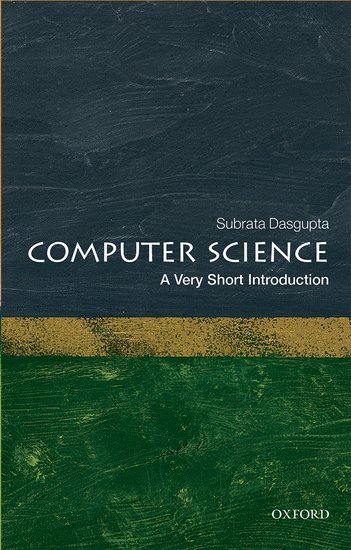What do you think?
Rate this book


176 pages, Paperback
First published January 1, 2016
Computer Science: A Very Short Introduction lives up to its promise of concision and clarity. Although I had picked up most of the content in bits and pieces in the past, Subrata Dasgupta wove them together into a coherent scheme, with beautiful prose, occasional learned references, and a polymathic eye for beauty.
Programs should be aesthetically satisfying; they should be beautiful. The experience of writing a program should be akin to composing poetry or music. Thus, the idea of style, so intimately a part of the discourses of art, music, and literature, must be an element of programming aesthetics.
Professor Dasgupta thought and talked a good deal about the place of computer science alongside the natural sciences and engineering. What we call it is less important than all the good work that has been done under its flag, but I remained unconvinced that it fits with the natural sciences. Most of the substantial innovation in the field has come, I would argue, from the scientists and engineers of hardware and software businesses, without dependence on the esoterica of academic computer science. In the Epilogue, however, Dasgupta points out:
...computational thinking serves as a bridge between the world of computational artifacts and the natural world, specifically that of biological molecules, human cognition, and neuronal processes. Could it be, then, that computing not only affords a mentality but that, more insidiously, computation as a phenomenon embraces the natural and the artificial? That computer science is a universal science?
The name then seems less appropriate than ever, and we should probably follow the Europeans who called it 'informatique' or 'informatik' years ago.
Very Short Introductions are available from the Oxford University Press to cover a vast range of subjects. I found the format delightful, apart from text that may try the visual acuity of old farts like me, and margins narrower than an undergraduate resume. I particularly value the practice of printing the main title and chapter titles in the outer margins, where they seemed much more visible and useful than at the top of the page.